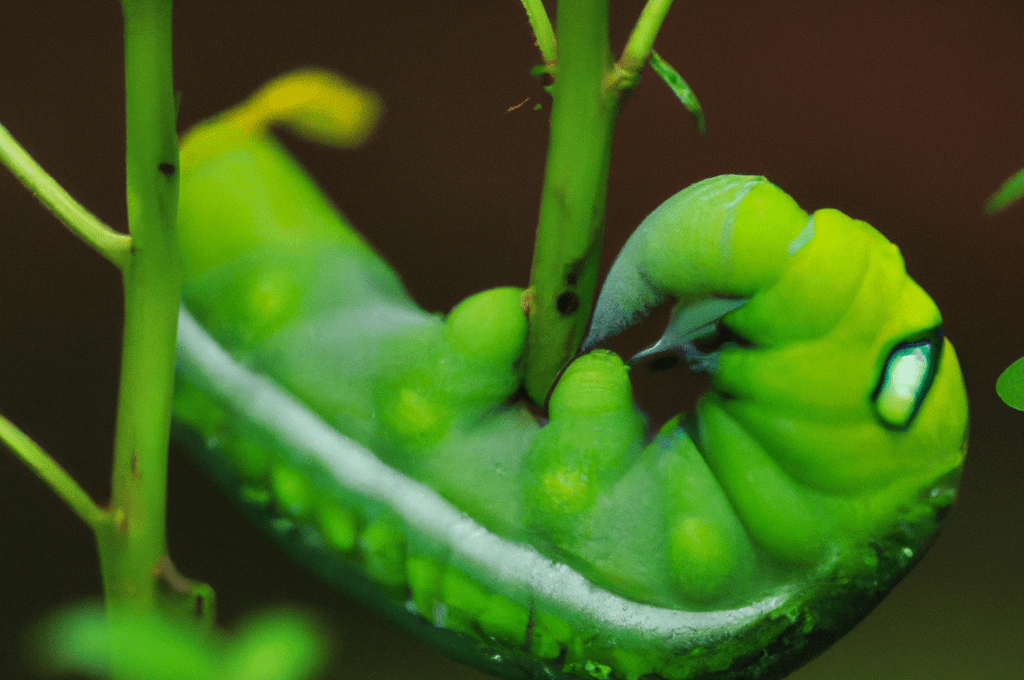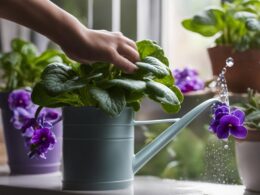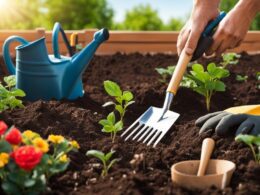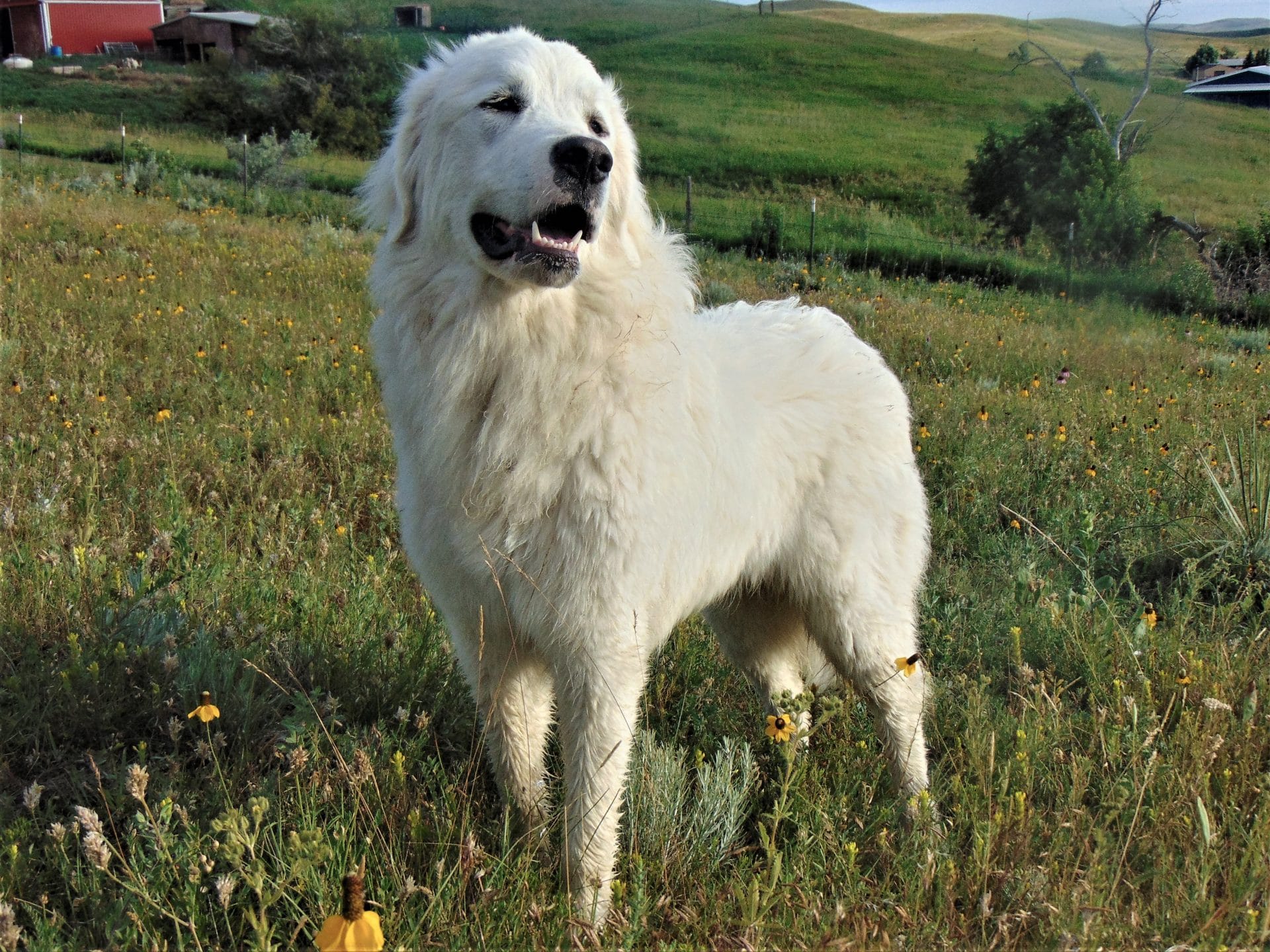Do you want a thriving garden that is full of life? If so, then you need to understand the importance of worms. These fascinating creatures play a vital role in maintaining the health of your garden, and to ensure that they thrive, you need to know what they eat and drink.
Worms are not picky eaters and will happily consume a range of organic matter, from vegetable scraps to fallen leaves. They also require water to survive and will drink from the moist soil in which they live.
By understanding the dietary habits of worms, you can create a healthy backyard ecosystem that will benefit both your garden and the planet. So, let’s explore the world of worms and discover what they eat and drink for a thriving garden.
Quick Summary
- Worms play a vital role in maintaining garden health by eating a range of organic matter, including vegetable scraps and fallen leaves, and leaving behind castings as fertilizer and aerating the soil.
- Understanding the dietary habits of worms creates a healthy backyard ecosystem, as coffee grounds are a favorite food of worms, and their castings are rich in nutrients like phosphorus, nitrogen, and potassium.
- The perfect habitat for worms is soil that is well-drained yet moist and rich in organic matter, as this ensures their survival and reproduction.
- Key benefits of incorporating worm castings into soil include creating a healthy, thriving environment for plants by improving the soil structure for better moisture retention, breaking down organic matter, and making it easier for plants to absorb nutrients.
Diet and Nutrition
You need to make sure your worms have a proper diet and access to moisture for their skin to absorb, so they can thrive in your backyard or garden. Worms have specific feeding habits that involve pushing food into their mouth and grinding it up in their gizzard. They eat dead and decaying plant matter like leaves, stems, wood, and roots. Coffee grounds are also a favorite food of worms.
In addition to their diet, worms have moisture requirements. They don’t drink water through their mouth, but they need moist skin for breathing. Well-drained yet dense soil that retains some moisture provides the perfect habitat for worms. Ground that is too wet will drown them, and soil that is too dry will dehydrate and suffocate them.
By providing your worms with the right diet and moisture, you can ensure they leave behind castings as fertilizer and aerate the soil, improving the health of your lawn and garden.
Habitat and Environment
For optimal habitat and environment, make sure that the soil in your backyard or garden is well-drained yet retains some moisture. Worms need a moist environment to breathe through their skin, but if the ground is too wet, they can drown. On the other hand, if the soil is too dry, the worms will dehydrate and suffocate.
The perfect habitat for worms is soil that is dense enough to retain some moisture, but also well-drained to prevent waterlogging. The composition of the soil is also important for the health of your worm population. Worms thrive in soil that is rich in organic matter, such as dead plant and animal matter, and manure.
This type of soil provides the nutrients that worms need to grow and reproduce. Coffee grounds are a favorite food of worms, and their castings are rich in nutrients that help new plants grow. By ensuring that your soil has the right moisture levels and composition, you can create a thriving habitat for worms that will improve the health of your backyard or garden.
Benefits for Garden
To improve the health and growth of your plants, consider incorporating worm castings into your soil. Worm castings are rich in nutrients that help new plants grow. They contain essential minerals like phosphorus, nitrogen, and potassium.
Additionally, worm castings are known to improve the structure of the soil, making it more absorbent and able to retain moisture. Worm castings also have composting benefits. They help break down organic matter in the soil, making it easier for plants to absorb the nutrients they need.
Worms also help control pests in your garden. They eat harmful insects like grubs and aphids, which can cause damage to your plants. By incorporating worm castings into your soil, you can create a healthy, thriving environment for your plants to grow in.
Frequently Asked Questions
How do worms reproduce?
Worms reproduce by laying eggs in soil. The process is frequent and necessary for soil health as it aerates and adds nutrients. Without it, soil quality declines.
Do different types of worms have different dietary needs?
Did you know that different types of worms have different dietary needs? Their feeding habits depend on their location and species. Some eat organic matter while others feed on microscopic fungi, bacteria, and algae.
Can worms survive in extreme temperatures?
Worms can survive extreme temperatures, but their heat tolerance and ability to survive in winter depends on the species. Some can survive freezing temperatures while others need to be protected from heat. Keep them moist and provide insulation for their habitat.
How long do worms typically live?
Worms typically live for 1-5 years, but their mortality rate depends on environmental factors like temperature and moisture. To ensure a thriving garden, provide them with a suitable habitat that meets their needs.
What are some common predators of worms in a backyard or garden setting?
Preventing predators and protecting worms in your backyard or garden is crucial for a thriving ecosystem. Natural solutions include keeping the soil moist and adding barriers like crushed eggshells. Chemical solutions should be used sparingly and with caution.








